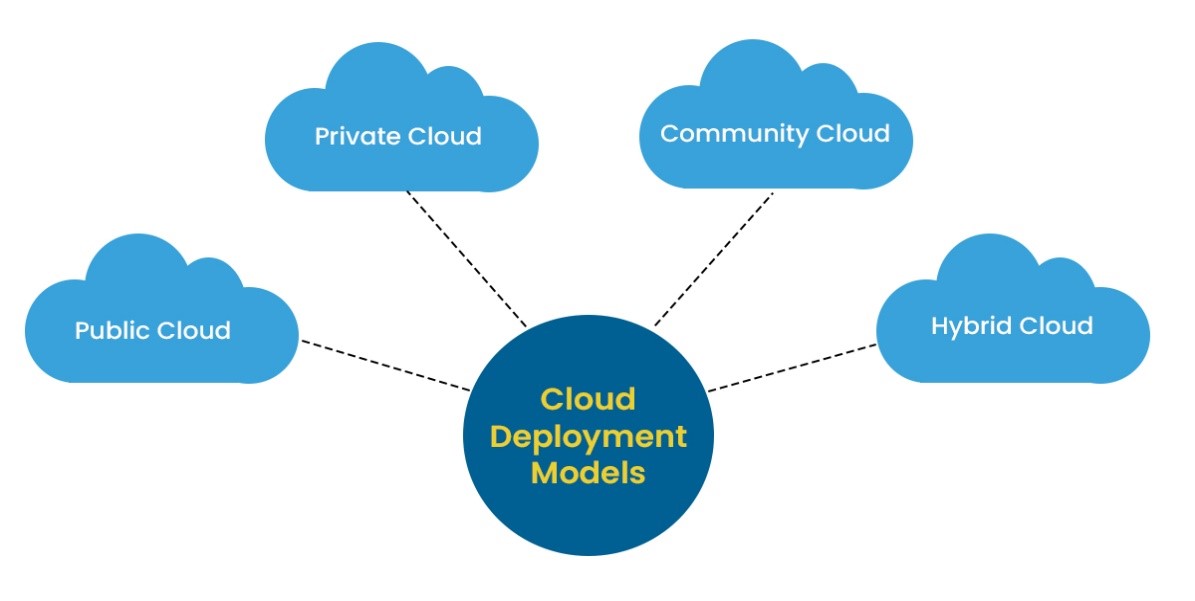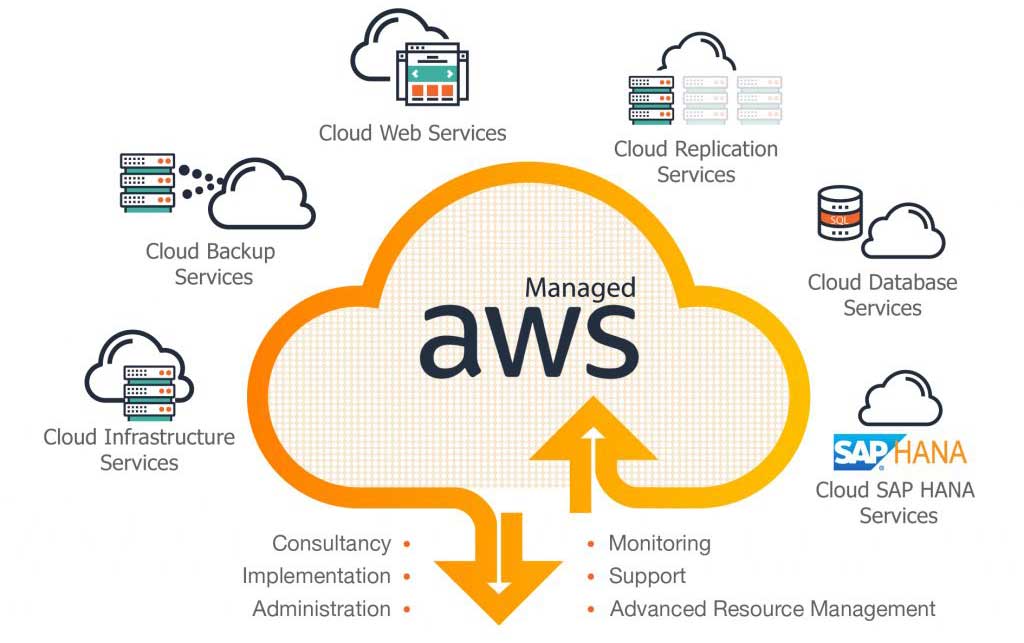Understanding Cloud Hosting: A Modern Approach to Web Hosting
Cloud hosting is a cutting-edge web hosting solution that offers unparalleled flexibility and scalability compared to traditional hosting methods. By leveraging virtualization technology, cloud hosting distributes resources across multiple interconnected servers, creating an on-demand pool of computing power and storage. This dynamic infrastructure allows users to scale their hosting capabilities seamlessly, ensuring optimal performance and resource allocation.
Notable Cloud Hosting Examples: A Comprehensive Overview
When it comes to cloud hosting examples, several prominent providers have established themselves as industry leaders. These platforms cater to a wide range of business needs, offering unique selling points and competitive advantages. Here, we will provide a balanced comparison of the top three cloud hosting providers:
- Amazon Web Services (AWS): As one of the earliest entrants in the cloud computing market, AWS boasts an extensive range of services and a substantial market share. AWS is renowned for its on-demand computing resources, data storage, and networking capabilities, making it a popular choice for businesses of all sizes.
- Microsoft Azure: Microsoft’s cloud platform offers robust integration with its suite of productivity tools, such as Office 365 and Dynamics 365. Azure is particularly well-suited for enterprises seeking a hybrid cloud solution, as it allows for seamless integration between on-premises infrastructure and cloud-based resources.
- Google Cloud Platform (GCP): GCP has made significant strides in the cloud hosting market, thanks to its powerful AI and machine learning tools, such as TensorFlow and Cloud AutoML. GCP is an excellent option for businesses looking to leverage advanced analytics and data processing capabilities in their cloud hosting solution.
Each of these cloud hosting examples has its own strengths and weaknesses, and choosing the right one depends on a variety of factors, including cost, scalability, security, and support. In the following sections, we will delve deeper into each platform, exploring their unique features and successful use cases across various industries.
Amazon Web Services (AWS): A Leader in Cloud Computing
Amazon Web Services (AWS) is a dominant player in the cloud hosting market, offering a vast array of services and features that cater to a wide range of business needs. AWS’s popularity and market share can be attributed to its extensive range of offerings, including on-demand computing resources, data storage, and networking capabilities.
Key Services and Features
Some of the most popular AWS services include:
- Elastic Compute Cloud (EC2): EC2 provides scalable computing capacity in the cloud, enabling users to quickly launch and terminate virtual servers as needed.
- Simple Storage Service (S3): S3 is a highly durable and scalable object storage service that allows users to store, retrieve, and manage data from anywhere on the web.
- Relational Database Service (RDS): RDS simplifies the process of setting up, operating, and scaling a relational database in the cloud, supporting popular database engines such as MySQL, PostgreSQL, and Oracle.
Successful Use Cases
AWS has proven to be a valuable cloud hosting solution for businesses across various industries, including:
- Media and Entertainment: Major streaming platforms, such as Netflix and Spotify, leverage AWS to handle massive traffic volumes and deliver high-quality content to users worldwide.
- Healthcare: Healthcare providers and research institutions, such as the U.S. Department of Veterans Affairs and the Broad Institute, utilize AWS to process, store, and analyze sensitive medical data securely and efficiently.
- Finance: Financial institutions, such as FINRA and Capital One, rely on AWS to ensure regulatory compliance, enhance security, and modernize their IT infrastructure.
By offering a robust and flexible cloud hosting solution, AWS has established itself as a trusted partner for businesses seeking to scale, innovate, and stay competitive in today’s rapidly evolving digital landscape.
Microsoft Azure: A Versatile Solution for Businesses
Microsoft Azure is a robust and versatile cloud hosting platform that offers a wide range of services and features tailored to meet the diverse needs of businesses. Azure’s unique selling points include its seamless integration with Microsoft products, hybrid cloud capabilities, and competitive pricing, making it an attractive choice for organizations of all sizes.
Hybrid Cloud Capabilities
One of Azure’s key strengths is its ability to facilitate a smooth transition between on-premises infrastructure and cloud-based resources. This hybrid cloud approach enables businesses to:
- Maintain control over their existing IT investments while leveraging the benefits of cloud computing.
- Enjoy a consistent and cohesive user experience across both on-premises and cloud environments.
- Easily move workloads and data between on-premises and cloud environments as needed.
Integration with Microsoft Products
Azure’s deep integration with Microsoft’s suite of productivity tools, such as Office 365 and Dynamics 365, offers numerous advantages for businesses that rely on these platforms. By adopting Azure, organizations can:
- Enhance collaboration and productivity through seamless integration with familiar tools like Microsoft Teams, SharePoint, and OneDrive.
- Simplify identity and access management with Azure Active Directory.
- Enjoy a unified development experience with Azure DevOps and Visual Studio.
Successful Azure Implementations
Microsoft Azure has proven to be a valuable cloud hosting solution for businesses in various sectors, including:
- Retail: Major retailers, such as ASOS and Gap Inc., have leveraged Azure to modernize their IT infrastructure, enhance customer experiences, and drive innovation.
- Manufacturing: Companies like Rockwell Automation and Rolls-Royce have utilized Azure to optimize their supply chain management, improve operational efficiency, and accelerate product development.
- Healthcare: Healthcare providers, such as Kindred Healthcare and Providence St. Joseph Health, have adopted Azure to securely manage sensitive patient data, streamline workflows, and deliver personalized care.
By offering a versatile and feature-rich cloud hosting solution, Microsoft Azure has established itself as a trusted partner for businesses seeking to harness the power of the cloud and drive growth in today’s competitive marketplace.
Google Cloud Platform (GCP): Powering Innovation with AI and ML
Google Cloud Platform (GCP) is a powerful and cutting-edge cloud hosting solution that empowers businesses to harness the potential of artificial intelligence (AI) and machine learning (ML) technologies. GCP offers a wide range of AI and ML tools, such as TensorFlow and Cloud AutoML, enabling organizations to drive innovation, optimize operations, and make data-driven decisions.
AI and Machine Learning Tools
GCP’s AI and ML tools provide numerous benefits, including:
- Improved data analysis and predictive modeling capabilities.
- Enhanced automation and efficiency in business processes.
- The ability to develop and deploy intelligent applications and services.
Data Analytics and Networking Services
In addition to its AI and ML capabilities, GCP offers robust data analytics and networking services, such as:
- BigQuery: A serverless, scalable data warehouse that enables businesses to analyze petabytes of data in seconds.
- Cloud Pub/Sub: A messaging service that allows for real-time data streaming and exchange between applications and services.
- Cloud Spanner: A globally distributed, horizontally scalable relational database service that offers strong consistency and high availability.
Successful GCP Implementations
Google Cloud Platform has been successfully implemented across various industries, including:
- Technology: Companies like Snapchat and Spotify have leveraged GCP to scale their infrastructure, enhance performance, and optimize costs.
- Healthcare: Organizations such as the Broad Institute and the U.S. Department of Veterans Affairs have utilized GCP to securely store, process, and analyze sensitive medical data.
- Finance: Financial institutions, such as HSBC and PayPal, have adopted GCP to modernize their IT infrastructure, enhance security, and meet regulatory compliance requirements.
By offering a feature-rich cloud hosting solution with a strong focus on AI and ML, Google Cloud Platform is well-positioned to help businesses drive innovation and stay competitive in today’s rapidly evolving digital landscape.
How to Choose the Right Cloud Hosting Provider for Your Needs
Selecting the ideal cloud hosting provider is a crucial decision that can significantly impact your business’s success. To make an informed choice, consider the following factors:
Cost
Assess your budget and determine the cost structure that best aligns with your financial constraints. While some providers may offer lower upfront costs, others might provide more cost-effective long-term solutions through economies of scale.
Scalability
Evaluate each provider’s ability to scale resources up or down as needed. A scalable solution ensures optimal performance during peak demand while minimizing costs during periods of low usage.
Security
Examine each provider’s security measures, including data encryption, access controls, and compliance with industry standards. Opt for a provider that prioritizes security and offers robust protection against cyber threats.
Support
Assess the quality and availability of technical support. A reliable provider should offer 24/7 customer support, addressing any issues promptly and efficiently.
Checklist or Comparison Table
To streamline the decision-making process, create a checklist or comparison table that outlines the key features and benefits of each cloud hosting provider. This visual aid will help you evaluate each option side-by-side, ensuring you select the best fit for your business needs.
By carefully considering these factors and utilizing a comparison tool, you can make an informed decision when selecting a cloud hosting provider, ultimately setting your business up for success in the ever-evolving digital landscape.
Maximizing the Potential of Cloud Hosting: Best Practices and Tips
To fully leverage the benefits of cloud hosting, it’s essential to implement best practices and follow expert tips. Here are some strategies to optimize your cloud hosting resources and ensure smooth operation:
Load Balancing
Distribute network traffic across multiple servers to prevent any single server from becoming overwhelmed. Load balancing enhances performance, ensures high availability, and minimizes the risk of downtime.
Auto-Scaling
Automatically adjust your cloud hosting resources based on demand. Auto-scaling enables you to scale up during peak usage periods and scale down when demand is low, ensuring optimal performance and cost efficiency.
Containerization
Package your applications and their dependencies into isolated containers. Containerization enhances portability, simplifies deployment, and improves resource utilization.
Monitoring and Maintenance
Regularly monitor your cloud hosting environment to identify and address potential issues proactively. Implement a maintenance strategy that includes patching, updating, and optimizing your resources to ensure smooth operation and minimize costs.
By following these best practices and tips, you can maximize the potential of your cloud hosting resources, ensuring optimal performance, cost efficiency, and a competitive edge in your respective industry.
Navigating the Future of Cloud Hosting: Trends and Predictions
The cloud hosting landscape is continuously evolving, with new trends and technologies shaping the way businesses operate. Staying informed and adapting to these changes is crucial for remaining competitive in your respective industry. Here are some emerging trends and predictions in cloud hosting:
Edge Computing
Edge computing involves processing data closer to the source, reducing latency and improving performance. As IoT devices and smart applications become more prevalent, edge computing is expected to play a significant role in cloud hosting, offering a more efficient and responsive user experience.
Serverless Architecture
Serverless architecture enables developers to build and run applications without managing servers, allowing them to focus on the application logic rather than infrastructure management. This trend is expected to grow as businesses seek to optimize resources and reduce costs.
Multi-Cloud Environments
Adopting a multi-cloud strategy, which involves using multiple cloud hosting providers, can offer increased flexibility, scalability, and redundancy. As businesses aim to mitigate the risk of vendor lock-in and enhance disaster recovery capabilities, multi-cloud environments are likely to become more common.
By staying informed about these trends and considering how they might impact your business, you can adapt your cloud hosting strategy and remain competitive in the ever-evolving digital landscape.






